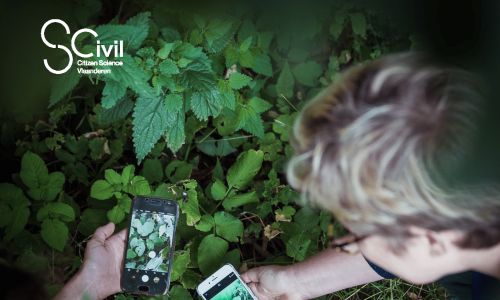Communication guide for citizen science projects launched in Flanders
Scivil, the Flemish knowledge centre for Citizen Science, recently launched a communication guide for citizen science projects during the ‘Building bridges colloquium on interdisciplinary research’.
Public participation in science is increasing, and citizen science has a central part in this. Various types of citizen science projects exists, combining many research approaches from different disciplines in order to involve citizens in data collection and research. What is essential to all citizen science projects, is good communication in order to recruit, inform and train citizen scientists. Therefore, Scivil started a working group on communication and participation in order to condense communication expertise into a guide for initiators of citizen science projects.
Research showed that while most projects are successful in attracting citizens to participate in citizen science project in the first place, it is more challenging to keep them involved in the longer term as well as to reach a more diverse target group. The communication guide provides guidance on creating a communication plan for citizen science projects, including an exercise on target group determination. In addition, a number of techniques and tools for promoting continuous participation are offered.

Ground Truth 2.0 is included in the communication guide as an example of a “co-created project”, meaning that the stakeholders of the respective citizen observatories, such as citizens, policy makers and decision makers, are involved in the citizen observatory design and creation. More specifically, the communication guide describes the citizen observatory KlimaatRobuust St-Andries in Antwerp, which has been set up with the help of the Ground Truth 2.0 Project. KlimaatRobuust St-Andries’ mission is to be a physical and online meeting place where citizens, policy makers and scientists gather information and knowledge about heat stress, make this accessible for everyone and actively spread the information in order to influence the policy agenda and start and maintain initiatives to reduce heat stress. The first initiatives were heat measuring campaigns in the summer of 2018 and 2019 and the mapping of cool indoor and outdoor places were people sensitive to heat are able to go to cool down during heat events.
The communication guide [in Dutch] is freely available and can be downloaded here. For questions about the guide, you can contact Scivil at info@scivil.be
